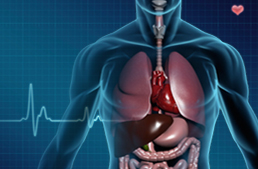Do you know the signs of a heart attack?
Posted in Health & Wellness on February 7, 2013
 February is a month where we celebrate love by giving our heart to someone on Valentine’s Day. But it also is a month where we raise awareness of how to keep that heart healthy.
February is a month where we celebrate love by giving our heart to someone on Valentine’s Day. But it also is a month where we raise awareness of how to keep that heart healthy.
Heart disease is the leading cause of death in the United States. That’s one reason why every year, February is designated as National Heart Month.
Annually, about 935,000 Americans have a heart attack. About 15 percent of people who suffer from one will die from it.
Knowing the warning signs and symptoms of a heart attack is key to preventing death, but many people don’t.
In a 2005 survey by the U.S. Centers for Disease Control and Prevention, 92 percent of respondents recognized chest pain as a symptom of a heart attack. Unfortunately, only 27 percent were aware of all major symptoms and knew to call 911 when someone was having a heart attack.
About 47 percent of sudden cardiac deaths occur outside a hospital. This suggests that many people with heart disease don’t act on early warning signs.
Heart attacks have several major warning signs and symptoms:
- Chest pain or discomfort.
- Upper body pain or discomfort in the arms, back, neck, jaw, or upper stomach.
- Shortness of breath.
- Nausea, lightheadedness, or cold sweats.
If you think that you or someone you love is having a heart attack, you need to call 911 immediately. A person’s chance of surviving a heart attack increases greatly if emergency treatment is administered as soon as possible.
Who is at risk?
High blood pressure, high LDL cholesterol, and smoking are major risk factors for heart disease. About half of Americans have at least one of these three risk factors.
Several other medical conditions and lifestyle choices can also put people at a higher risk for heart disease, including:
- Diabetes
- Overweight and obesity
- Poor diet
- Physical inactivity
- Excessive alcohol use
How can you protect yourself?
Lowering you blood pressure and cholesterol will reduce your risk of dying of heart disease. Here are some tips to protect your heart:
- Follow your doctor’s instructions and stay on your medications.
- Eat a healthy diet that is low in salt; low in total fat, saturated fat, and cholesterol; and rich in fresh fruits and vegetables.
- Take a brisk 10-minute walk, 3 times a day, 5 days a week.
- Don’t smoke. If you smoke, quit as soon as possible.
Knowing the warning signs of a heart attack and following experts’ advice to reduce your risk of heart disease are great ways to stay heart healthy. Make sure your loved ones are informed as well. They’ll thank you for it.